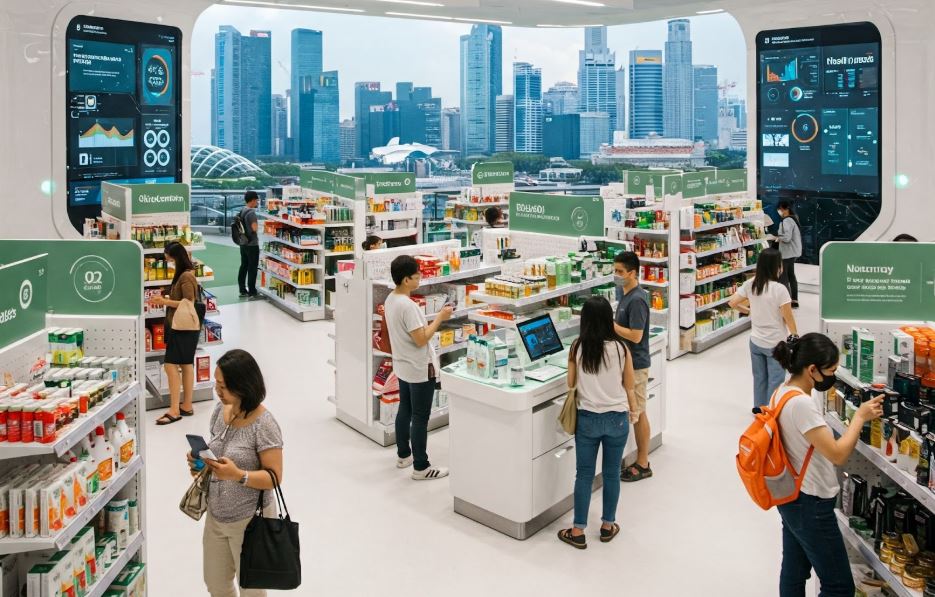Singapore retailers turn to AI to combat rising costs and stay competitive

A growing number of retailers in Singapore, are adopting AI agents with 85% planning to boost AI investments in 2025 and nearly 70% saying AI will be critical to outperforming competitors within a year, according to Salesforce’s latest Connected Shoppers Report.
As physical store purchases are projected to drop from 43% in 2024 to 38% by 2026, spending is increasingly fragmented across websites, apps, marketplaces and delivery platforms. This complexity is making it harder for retailers to attract and retain customers without modernizing their systems. AI agents, that are autonomous systems that can operate across marketing, customer service and inventory, are emerging as a strategic solution.
For many small and medium-sized enterprises (SMEs) operating in Singapore’s high-cost retail environment, AI presents a practical way to improve productivity and streamline customer experiences. Marketing is a top focus, with AI tools now used to dynamically segment audiences and launch personalized campaigns based on real-time shopper behavior. This not only speeds up campaign execution but allows leaner teams to focus on creative strategy rather than routine tasks.
Beyond marketing, AI agents are being deployed to automate customer queries, manage loyalty programs, handle returns and support store associate training. For example, retailers are using AI to resolve repetitive requests like order modifications or product returns, freeing up staff for higher-value interactions.
Outdated systems are also becoming a growing problem, with 75% of retailers admitting that inefficient technology is hindering staff performance, and 61% of shoppers in Singapore abandoning a purchase due to inconvenience at the checkout. This is driving the adoption of a unified commerce platform that connects online and offline channels and provides AI with access to relevant data in real time.
Velia Carboni, CIO of SharkNinja, said her team uses an AI layer embedded into their unified platform called “Agentforce” to build loyalty and engagement among consumers. The solution helps streamline operations and ensures consistent service across all touchpoints.
Unified commerce is already underway at 82% of Singapore retailers, suggesting that most businesses recognize the need to break down silos between physical stores, websites, back-end logistics and customer service. AI agents cannot function effectively without this integration, as they rely on connected systems to deliver timely, accurate, personalized responses.
Consumers, particularly younger demographics, are also showing increasing openness to AI. In Singapore, 36% of shoppers use AI for product discovery, rising to 53% among Gen Z. Many are comfortable with AI agents managing loyalty points or delivering faster service, but trust remains a major factor. Shoppers expect clear privacy safeguards, transparent data use, opt-in controls and the option to speak with a human.
Retailers looking to harness AI’s full potential will need to strike a balance between automation and trust. As expectations rise and competition intensifies, embedding AI within unified commerce platforms is becoming essential for SMEs aiming to thrive in Singapore’s evolving retail landscape.


